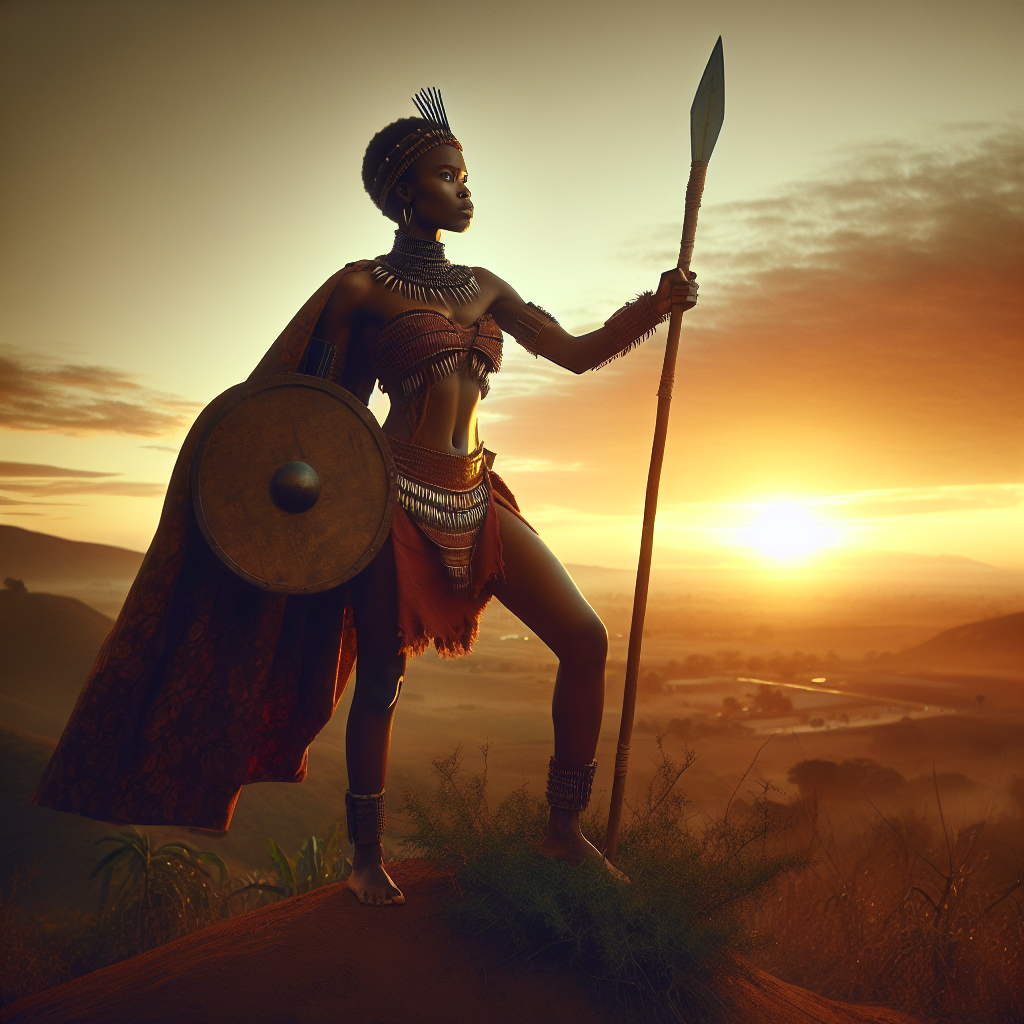Queen Nzinga: The Defiant Warrior Against Colonialism
Introduction
When it comes to the pantheon of fierce black queens and daring leaders, Queen Nzinga is a name that practically roars through the annals of history. This royalty didn’t just sit on a throne and sip tea while waving to the crowd—nope, she was unapologetically out there in the trenches, standing tall against the European powers that thought they could just waltz into Africa and claim it like it was a garage sale. Born in the late 16th century in what is now Angola, Nzinga wasn’t just a queen; she was the embodiment of resilience and resistance in the face of colonial injustice. So, grab your favorite beverage (maybe something strong, to match her spirit) and let’s unpack the inspiring saga of this formidable woman.
Early Life: The Making of a Warrior Queen
Nzinga was born around 1583 to King Ngola Kiluanji in the Kingdom of Ndongo—talk about royal blood! From her early days, she was being groomed for leadership, but not for tea parties and fancy hats. Nope, she was being prepped for the game of thrones—a game that, let’s be real, was less about crowns and more about navigating colonial bureaucracy and dodging colonial bullets. Nzinga learned the ins and outs of governance, diplomacy, and military strategy like she was getting ready to take on the schoolyard bullies. Spoiler alert: she absolutely did!
Rise to Power: The Ascendance of Nzinga
So picture this: one day, there’s a mysterious death in the royal family, and instead of a meek funeral, Nzinga steps up, proclaims herself queen, and kicks the door down to the Ndongo court like it’s a Renaissance-era Russian craze for self-assertion. The Ndongo and Matamba kingdoms didn’t just exist—they thrived, bustling with culture and resources, throwing a wrench into the colonial ambitions of the Portuguese. Queen Nzinga wasn’t just a pretty face in a fancy dress; she harnessed her intelligence and diplomatic skills to rally her people around the banner of resistance. She didn’t just say, “You can’t have our resources!” She meant it.
The Struggle Against Colonialism: Nzinga’s Defiance
Now let’s talk about her encounters with the Portuguese. You think political meetings are stuffy now? Try showing up in 1620 at a diplomatic conference in Luanda, demanding a seat at the table while declaring that no queen should be subjected to sitting on the dirt. Nzinga was definitely not about to let anyone forget who was in charge. She rolled out her guerrilla warfare tactics like they were hotcakes, challenging European forces in ways that made folks sit up and take notice. Talk about shaking things up! Her military campaigns were more than just battles; they were straight-up lessons in how to stand your ground when oppressive forces come knocking.
Diplomacy and Alliance Formation: The Strategy Behind Resistance
Nzinga didn’t play chess; she played 5D chess. While others were busy trying to hammer her down, she was forging alliances like a boss. She collaborated with neighboring kingdoms and even brought the Dutch into her circle to mess with the Portuguese. Imagine that—bringing your rivals together just to teach the oppressors a lesson. Nzinga’s diplomatic wizardry drew international attention to her cause, lighting the fires of empowerment throughout Africa and beyond. Forget just fighting with swords; she was slinging strategies left and right!
The Lasting Legacy of Nzinga: A Symbol of Strength
Let’s be real: Queen Nzinga didn’t just fight for her kingdom; she became a beacon of inspiration for countless generations. Her tales have transcended time, inspiring everyone from anti-colonial fighters to modern social justice warriors. When people reference resilience and defiance, they should throw her name into the mix like confetti at a parade. Today, she stands tall in literature and cultural representations, a living testament to the power and strength that can emerge from resistance.
Lessons from Queen Nzinga’s Leadership: Modern Implications
What can we learn from Nzinga’s fierce reign? Plenty! Resilience, unity, collaboration—her story is more than just history; it’s a roadmap for today’s activists. As we honor her legacy, we are reminded that the fight for justice and empowerment has deep roots, and the strategies she employed—collaboration, determination, and a bit of sass—are still relevant today. Let’s channel that energy into confronting systemic oppression and ensuring that her spirit lives on in our actions.
Conclusion: Remembering Queen Nzinga
So as we reflect on the legacy of Queen Nzinga, let’s keep the flame of resistance alive. Her courage sheds light on the importance of knowing our past—a past that challenges us to dismantle the lingering structures of injustice. The story of this warrior queen isn’t just one of historical interest; it’s a call to action. Let’s raise our voices, challenge the status quo, and ensure that the legacies of defiance and empowerment blaze brightly in our own lives.
Call to Action: Explore the Heritage of Resistance
Are you feeling inspired? Dive into the life of Queen Nzinga and other historical figures who stood up against the oppressive tides. Immerse yourself in literature, documentaries, and cultural studies that explore the rich legacies of resistance. Because understanding our history and culture isn’t just about knowing where we came from—it’s about knowing how to forge a path forward. Let’s get curious, get involved, and honor the indomitable spirit of those who came before us!



0 Comments